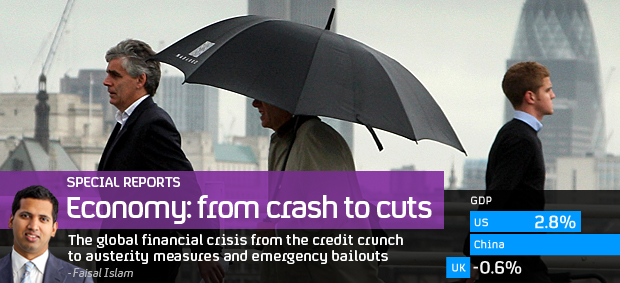After the second Greek bailout, is Europe becoming a country?
I awake in a Europe that is still a continent, but which appears to becoming a country.
That is my main reflection hours after an extraordinary Summit of Eurozone country leaders. Immediately after the Committee to Save the Euro declared Victory, a splendid display of fireworks lit up the Brussels night. It was for Belgium’s national day, but perhaps in decades to come 21 July 2011 will also mark Europe’s National Day.
That’s because what was agreed yesterday went well beyond a €109bn Mark II bailout of Greece. It was also a bailout of Greece’s banks, a mini second bailout for Ireland and Portugal, the launch of the “economic government” of Europe, and especially the enfranchisement of a hitherto obscure company called the EFSF.
Yes, you might never have heard of the European Financial Stability Fund. It barely existed formally a year ago. It is a Special Purpose Vehicle, conceived in the early hours of another fraught bailout summit in May 2010. Its genesis may well have been Alistair Darling’s Treasury officials, desperate to help a squabbling EU get out a statement before markets opened in Asia. It basically allowed this embryonic rescue fund to be controlled more firmly by the main paymaster Germany, rather than the European Commission itself.
And so yesterday, Europe’s leaders agreed sweeping powers for the EFSF (“flexibilisation” is the phrase) to lend and borrow, and buy. The key part of the communique: that the EFSF will be allowed to finance recapitalisation of banks in “non-programme countries” preemptively. That means Spain and Italy, and maybe even the odd bank in Germany and Austria too. Some analysts calculated that the EFSF would by implication need a budget of between €1.4 trillion and €2 trillion.
Some context: the annual budget of the entire European Union is €140bn. It is currently trying, painfully, to secure €1 trillion for a seven-year budget, post 2013.
So this Luxembourg-based company, owned by the EU, with a spending power which could top 10-15 years of the EU’s total budget is what Sarkozy referred to as the “near” European Monetary Fund. It employs 12 people.
Right now it has used its backing from the German taxpayer, to raise AAA debt at low interest rates. It will lend this money en masse on to the indebted southern countries, and a large chunk of Europe’s banking sector. This will inevitably raise Germany’s borrowing costs. I and others in Brussels wonder about a German backlash. It seems pretty certain that these changes will require votes in Parliaments. Germany will have to convince its people that it has taken control.
So this is not the Eurobond I talked about yesterday. But it is a leap in that direction of the phased fiscalisation of Europe. And though it was probaly the right thing, and it was easy to write down on paper, it still might make for difficult politics.
* so much to say about yesterday. In the space of half an hour, the head of the IMF and ECB, and EC all seemed frightened off by my asking one simple question about Greece. Find out what in a new lunchtime post.
